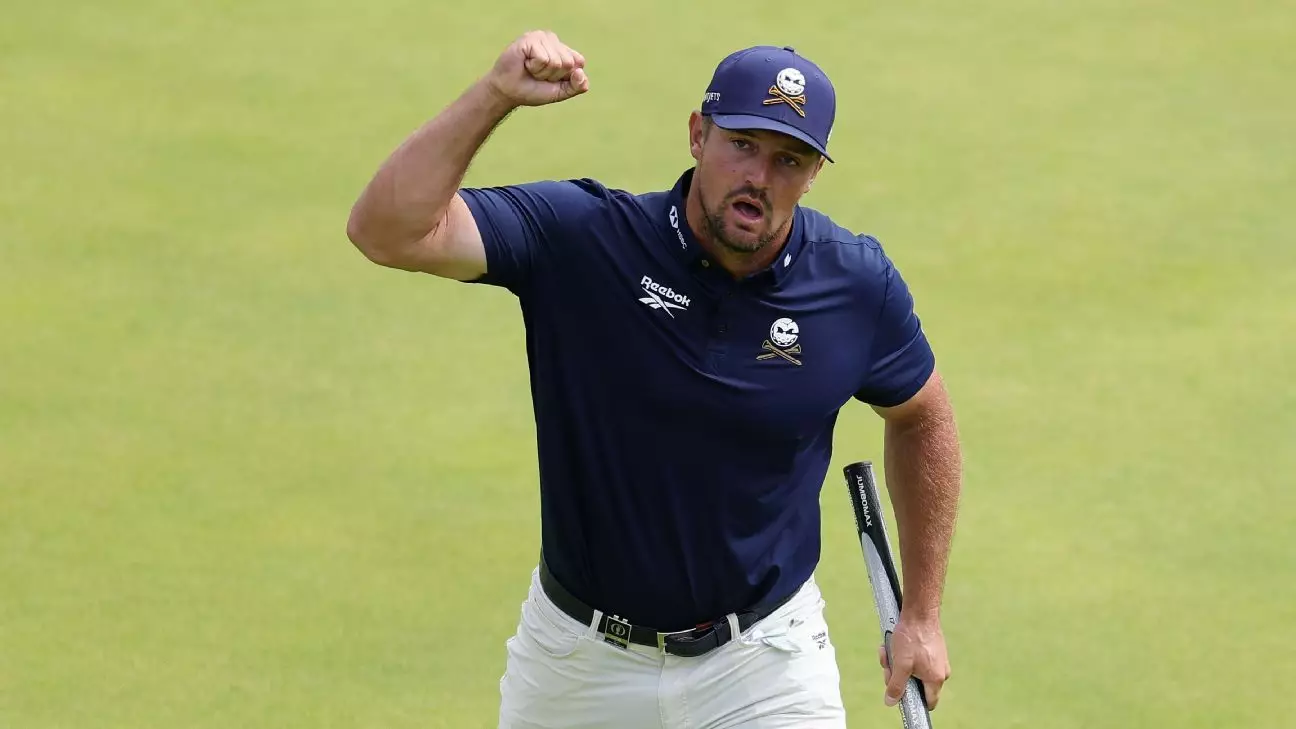In the world of professional golf, where consistency is often hailed as the ultimate badge of honor, Bryson DeChambeau’s recent performance at the Open Championship exposes the dissonance between reputation and reality. After a disastrous opening round — a staggering 78 that left him at the bottom of the leaderboard — the golfer displayed an incredible fighting spirit by bouncing back with three consecutive under-par rounds, culminating in a brilliant 64 on the final day. This turnaround is emblematic of a broader truth: athletic success is not solely about perfection but resilience and adaptability in the face of adversity.
DeChambeau’s journey underscores a critical flaw in how the sport’s narrative is often constructed. Instead of being perceived as the epitome of consistency, he reveals the unpredictable and volatile nature of high-level sports. His statement about preferring “fair conditions” reflects not just personal preference but an almost poignant acknowledgment of how injury, weather, and mental fatigue can disproportionately impact player performance. The sport’s obsession with formality and order sometimes overshadows this reality.
The Politics of Team Selection and the Elephant in the Room
The potential inclusion of DeChambeau on the Ryder Cup team signals more than just individual ambition; it embodies a subtle shift in the sport’s culture. Historically, the Ryder Cup has been one of the few arenas where team dynamics and national pride intersect with individual brilliance. Yet recent years have seen tension around the selection process, especially with player personalities clashing behind the scenes.
DeChambeau’s comments about his team experience with LIV Golf reveal an insightful perspective: success in a team setting doesn’t hinge solely on rigid roles or blanket strategies, but on fostering individual excellence within a collective effort. This nuanced approach challenges the old stereotypes of “team players” as merely obedient followers. Instead, it emphasizes the importance of empowering each athlete to perform at their best, recognizing that diversity of talent and personality can and should be celebrated.
The discussions surrounding Keegan Bradley’s captaincy and whether he will serve as a playing leader reflect ongoing debates about leadership styles within golf’s upper echelons. Bradley’s willingness to be flexible—considering himself a player but also a coach—mirrors the broader need for adaptable, inclusive leadership in sport. It acknowledges that victory isn’t just about the best player but about assembling a team that values chemistry, morale, and strategic flexibility.
Sporting Resilience as a Reflection of Societal Values
DeChambeau’s resurgence after a poor start isn’t merely a personal victory; it’s a commentary on the societal obsession with instant results and the undervaluing of perseverance. In a culture that often promotes quick wins and superficial applause, his story is a breath of fresh air, illustrating that setbacks can serve as fuel for meaningful comebacks.
This spirit of resilience is especially vital amid a polarized political landscape, where division and defeatism often dominate discourse. In recognizing the importance of grit and the capacity to recover from failure, DeChambeau’s story resonates with a broader call for societal renewal—one that values efforts and persistence over superficial prestige. His seemingly reckless yet ultimately determined approach champions the idea that progress is rarely linear but is always possible with commitment.
In an age where public figures are scrutinized for every mistake, DeChambeau embodies the ideal of owning one’s flaws and transforming setbacks into opportunities for growth. His journey offers a powerful lesson: that strength lies, not in perfection, but in the courage to persist despite adversity.

Leave a Reply